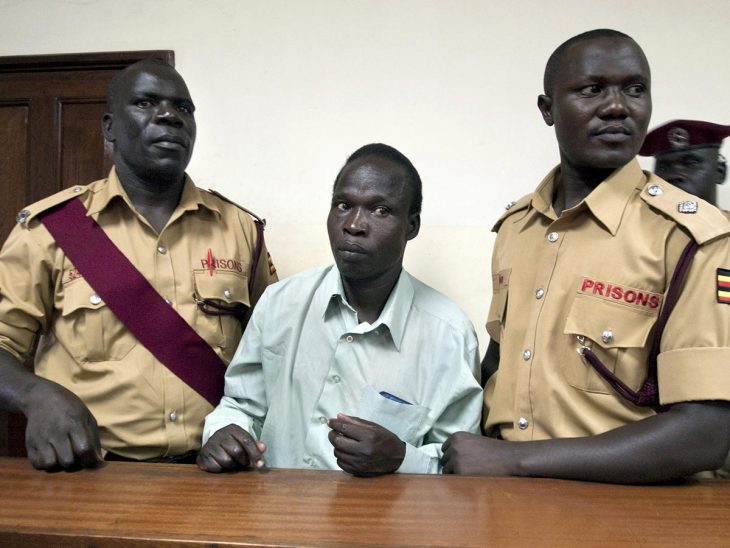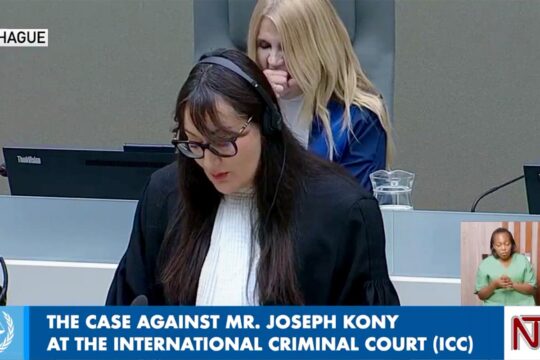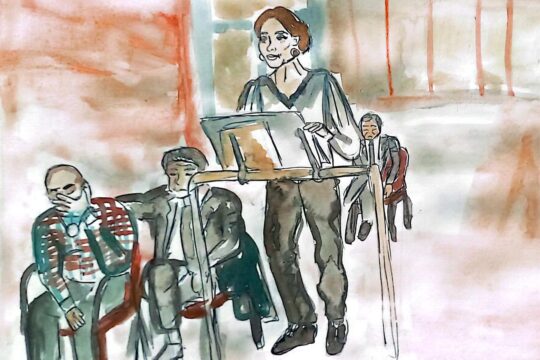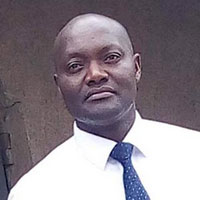The International Crimes Division (ICD) hasn’t achieved a war crimes case since its inception, in July 2008. To date, two cases are pending before the ICD. One of them, the case of former Lord’s Resistance Army (LRA) rebel Thomas Kwoyelo, has been dragging for more than 10 years since his arrest. It is announced to re-open on March 9.
Officially, Kwoyelo was captured on March 3, 2009, by the Ugandan army during a battle in the Democratic Republic of Congo (DRC). After legal pushbacks including an amnesty application, Constitution challenges, amendments of charges and appeals to the highest courts challenging the trial, the ICD, on August 30, 2018, finally confirmed 93 charges against Kwoyelo. The charges included war crimes and crimes against humanity. The Prosecution alleged that between 1993 and 2005 in Amuru district in Northern Uganda, Kwoyelo, as a commander of the LRA, led attacks to kill and kidnap civilians who were taking no active part into the hostilities.
After a number of false starts, the case actually opened on March 12, 2019 in the Northern Uganda regional capital of Gulu, the epicenter of the LRA armed conflict. Led by Florence Akello, the prosecution announced, in their opening statement, that they would bring “about 130 witnesses, 360 exhibits, pictures, medical notes, videos, newspaper extracts, and other forms of evidence to prove the charges” against the accused. To which lead defense counsel Caleb Alaka reacted: “Before you is a victim who was abducted on his way to school. The government failed to protect him. The prosecution wants to put all the crimes of the LRA on his small shoulders. We shall demonstrate that the accused did not hold a command position.”
So far, according to the deputy spokesperson of Uganda’s Directorate of public prosecution, Irene Kimbugwe, 13 prosecution witnesses “have testified amidst challenges of witness protection. Some witnesses have had to testify in-camera for fear of backlash from the community”.
A rushed and chaotic institution
“The International Crimes Division was hurriedly established and that’s why there have been hitches along the way to date,” observed Kampala-based human rights lawyer, Davis Bikaaku. “Uganda was under local pressure to serve justice to the victims of war at the time the government’s rhetoric against the International Criminal Court (ICC) was negative, so it wanted to create a parallel center of justice apart from the ICC,” he explained.
Uganda’s prominent lawyer and former defense counsel for Kwoyelo Nicholas Opiyo believes the division should have fared better, had Ugandan government developed necessary regulations and rules governing a court of such nature. “The country needed to develop regulations and rules [in the] new system that accommodates lawyers, victims’ participation and witness protection,” said Opiyo. “The case [of Kwoyelo] began on draft rules. They [the government] were shooting in the dark,” he continued. “The second problem is that the Court has never had a consistent bench. The first panel had three justices, but they were transferred. Every time there is a new panel which has to start all over afresh when they take over the bench,” said Opiyo.
Pending or potential cases
The other case for international crimes before the ICD involves Jamil Mukulu, a former commander of Uganda’s Islamist militant group, the Allied Democratic Forces (ADF), an active militia which is operating out of DRC. Mukulu, the principal founder of ADF was arrested in Tanzania in 2015 and handed over to Ugandan authorities. The charges against him and his 37 co-accused were confirmed in September 2019. The indictment alleges, among others, that Mukulu gave orders to his acolytes to commit murders in various parts of Uganda between 2002 and 2015.
Like in the Kwoyelo case, lack of funds is invoked to justify the slowness of the proceedings. “We went through the pre-trial phase, charges were confirmed, we are supposed to go for hearing, but this is dependent on availability of funds taking into account the magnitude of the case,” claimed Mukulu’s lawyer, Evans Ochieng. “It is up to the court to give us the date and we are waiting,” he added.
Another potential candidate for the Division was George Okot Odek, a former LRA commander who was captured in February 2016 by Seleka rebels in the Central African Republic (CAR), who handed him over to U.S. Special Forces working alongside Ugandan troops in the CAR to hunt the LRA. Odek, who was reportedly a Lieutenant-Colonel in the LRA and one of the most trusted aides of LRA leader Joseph Kony – an indictee at the ICC still at large – has since been in military jail in Uganda. “The Prosecutor’s office does not have any case in respect to George Okot Odek,” said Irene Kimbugwe, when asked if the captured commander was expected in court.
Other priorities
According to judicial sources, the work of the ICD and especially the Kwoyelo case is funded under a program called Justice Law and Order Sector financed by the European Union and some small funding by the Ugandan government. Last year alone, the EU has disbursed about 600 million Ugandan shillings (about 150 000 euros).
In fact, the special division has actually served other purposes than those for which it was created. According to Irene Kimbugwe, it so far prosecuted about 50 cases since inception, mainly cases of people tried for trafficking of human beings and terrorism.
“There is a structural problem in the judiciary that the ICD has no vote,” said Opiyo. “I don’t think the judiciary thinks the Kwoyelo case is on the list of priorities. No allowances for judges, for prosecutor, for lawyers, for the security.”







